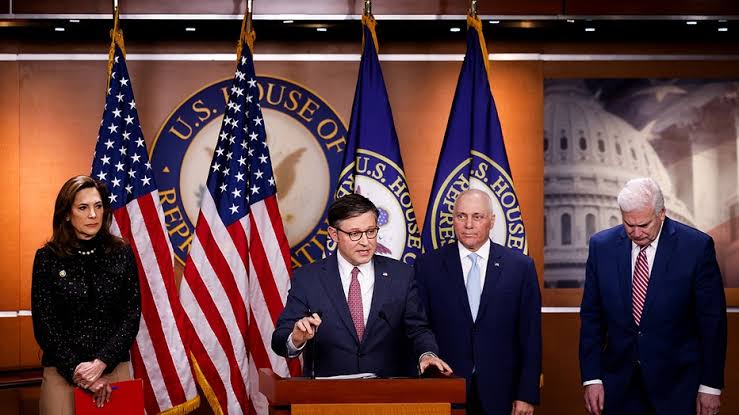Capitol Hill Update: House Passes FISA Reauthorization Amidst Bipartisan Tensions

In a significant legislative move, the House of Representatives has passed a bill reauthorizing the Foreign Intelligence Surveillance Act (FISA), extending the government’s surveillance powers on foreign targets until 2026.
The decision comes after intense debate and a previous setback orchestrated by GOP hard-liners.
The bill’s journey has been fraught with contention, reflecting the nation’s complex relationship with privacy and security.
Initially, a procedural vote on the bill was derailed by a group of Republicans, casting uncertainty over its fate. However, the House managed to pass the rule on Friday morning, leading to a final vote where all Republicans supported the rule.
The reauthorization of FISA, particularly Section 702, permits the U.S. government to collect, without a warrant, the communications of non-Americans located outside the country.
This has been a point of contention, as the surveillance also inadvertently captures data involving Americans.
Speaker Mike Johnson faced opposition within his party, with some members expressing concerns over civil liberties violations.
In response, the bill was amended to include a series of reforms aimed at addressing these issues, leading to a shortened two-year reauthorization period instead of the proposed five years.
Representative Chip Roy of Texas, initially an opponent, commented on the revised bill,
"The two-year timeframe is a much better landing spot because it gives us two years to see if any of this works rather than kicking it out five years. They say these reforms are going to work. Well, I guess we’ll find out."
Despite the reauthorization, the House narrowly voted down an amendment that would have required a warrant to search Americans’ data swept up in the process.
The amendment’s rejection, by a razor-thin margin, underscores the ongoing debate over the balance between national security and individual privacy rights.
The bill now heads to the Senate, where it is expected to face its own set of challenges. With the current authority set to expire on April 19, the Senate will need to act swiftly to ensure the continuation of these surveillance powers.



